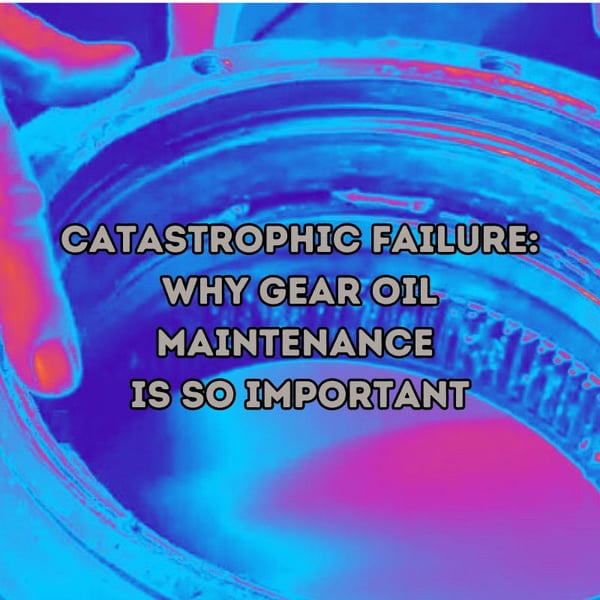What does catastrophic failure caused by a lack of maintenance look like? Let’s look at an example: a totaled planetary on a John Deere 332 final drive.

Here are some other Shop Talk Blog posts that might be helpful:
Totaled Gear Set
Here is the totaled planetary ring gear. If you look closely at the pictures, you can see where the gear teeth on the ring gear look like they’ve been chewed. As you can imagine, the planetary gears are also severely damaged. And it all likely started with a leaking seal that allowed the gear oil to leak out so that metal-to-metal contact started. This ring gear is totaled -- we won’t even try to repair it.
There’s more damage to that planetary system than just the gears. Here, chunks of metal are missing along the top of the image. Again, that metal is going to stay inside the hub.
Inner Race of the Main Bearing
Here’s the inner race of the main bearing on this John Deere 332 final drive motor. Dr Drive has his finger on the top shoulder, but as he follows it there’s just missing metal. The good news is that we can build up the shoulder again if we refurbish this planetary.
Face Seal Housing
There is no way the seal remained effective in the torn-up mess indicated by Dr. Drive’s finger. He almost cut himself trying to show how bad the damage was, but it’s something our techs can restore.
Planetary Gear Bearing Posts
Now, look at the posts holding the planetary gears and their bearings in place. You don’t even have to look closely to see the damage. The gears got out of alignment along multiple axes and tore up the bosses through metal-to-metal contact. Our experts can restore those posts, but it will take a lot of surface preparation, welding, and more.
What Happened?
This final drive motor was a victim of a lack of maintenance.
When a leak starts, the gear oil levels start dropping. That leaves components like bearings, gear teeth, and splines to experience damaging metal-to-metal contact. Scratches, gouges, galling, and spalling result as metal breaks off, generating metallic particles and slivers. These pieces of metal will lead to more damage in a cycle of mechanical destruction.
What could have prevented this level of catastrophic damage? Just one of these would have helped:
- Checking gear oil levels and topping it off when they drop
- Replacing the main seal when excessive amounts of gear oil had to be added
- Changing out the gear oil, which would have revealed the presence of so much metal
Pay Attention to Your Final Drives
No doubt, this final drive motor had developed severe issues with vibration, noise, and overheating before it failed. This is why we encourage owners and operators to notice if there are changes in behavior or performance. Noticing a leak and refusing to ignore signs of failure will save you money.
 Conclusion
Conclusion
The damage seen in this final drive motor didn’t happen overnight. Someone ran this drive until it was destroyed, and we see that quite a bit. We get it: you have deadlines and things that must be done. However, reactive maintenance, replacing something after it breaks, is not good for your final drives or pocketbook. Take care of your final drives and prevent costly catastrophic failures like this on.
And when something does go wrong, we’ll get you back running.


